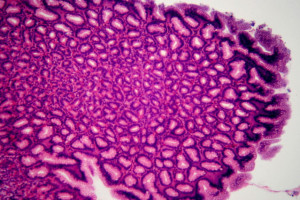
Perhaps the idea that we have gut feelings is true, as neuroscientists at the University of North Carolina have found links between gastrointestinal pathology and conditions such as anxiety, depression, autism, schizophrenia and neurodegenerative disorders.
Clues about the mechanisms by which gut bacteria might interact with the brain are starting to emerge. However, more research is needed and there are many outstanding questions to be answered. Rob Knight, microbiologist at University of California, has said, “is very difficult to tell if microbe differences you see associated with disease are causes or consequences.”
So far, there is no evidence that supplements that aid digestion can support emotional well-being as well, although pharmaceutical companies already looking into the idea. Over the last two years, the European Union has invested €9 million towards a five-year project called MyNewGut to investigate brain development and disorders.
It is already known that certain viruses can affect behaviour. For example, the rabies virus can make a person aggressive, agitated and develop a fear of water. A number of cases of anxiety I have seen have shown raised anxiety after taking high doses of antibiotics. Link between depression and anxiety with irritable bowel syndrome has often led researchers to look at what came first. A case in Canada in 2000 where water was infected and about 2300 people suffered with gastro enteritis has shown they developed many symptoms of depression, anxiety. A chicken and egg situation, where the infection increases the IBS, which increases anxiety, which increases the IBS.
University of California, has also discovered that gut microbes directly alter neurotransmitter levels, which enable them to communicate with neurons. They found mice living in germfree laboratory environment have less serotonin in their blood, and mice living in a natural microbiota, were found to have reduced serotonin production when they were given antibiotics.
It also looks like mice born naturally contained Lactobacilli in them, which was passed on to them by the mouse mothers vagina. The microbes are carried over to the pups born vaginally, but not through caesarean birth. Work needs to be done now into how microbes colonise humans and whether what happens to us at birth can determine later mental health disorders. Children’s diets, stress at home and other environmental exposures all affect their microbiota and so their neurological development, to what degree so far is unknown.
The problem is there are so many things that can affect gut microbes that we may never be able to use this in mental health disorders.
